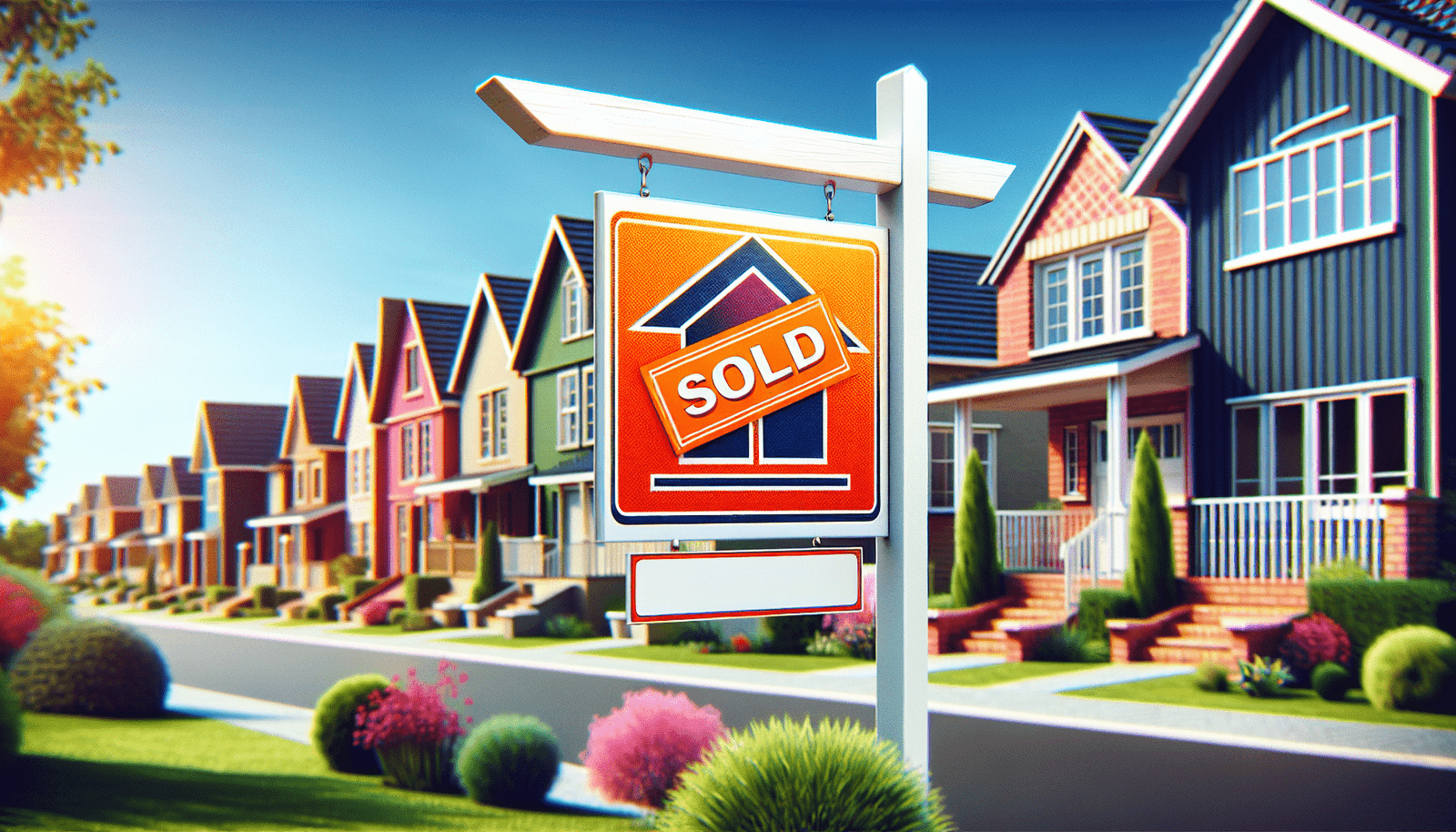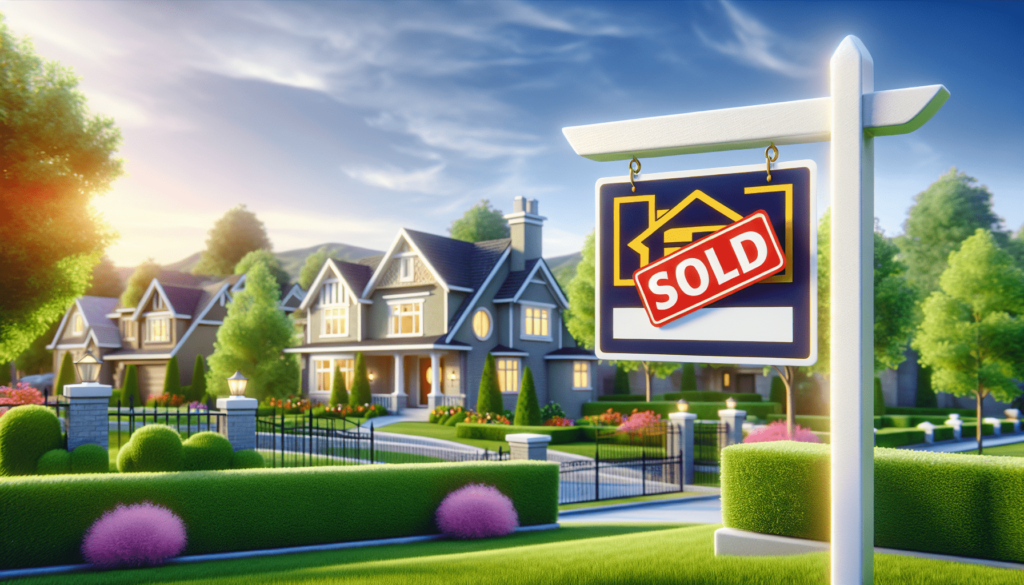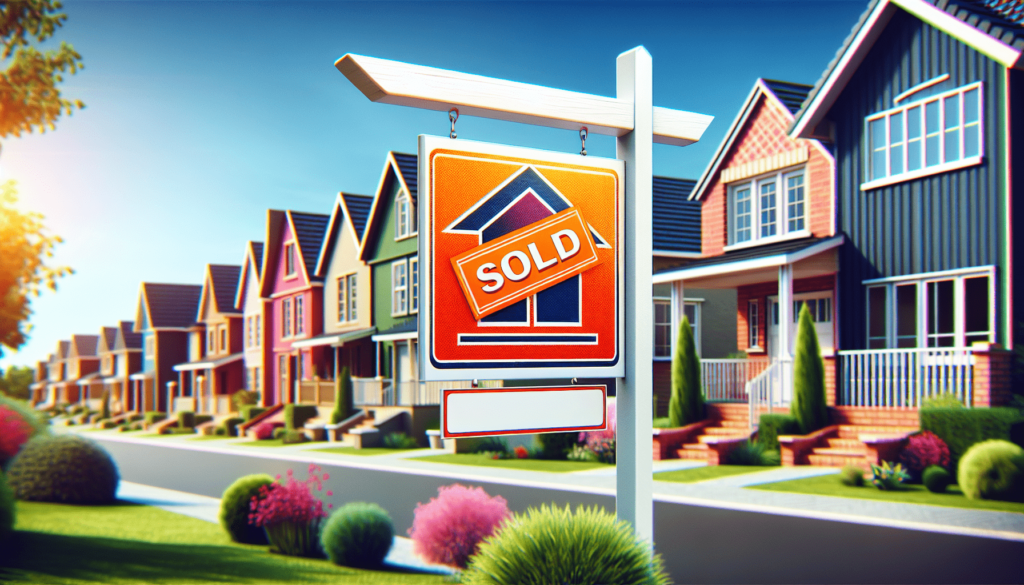
Wouldn’t it be great to have a clear understanding of the factors that can affect the value of your home? In this short article, you’ll discover 25 key elements that play a crucial role in determining the worth of your property. From location and curb appeal to market conditions and home improvements, each factor has the potential to positively or negatively influence your home’s value. So, if you’re curious about what determines the market price of your beloved abode, keep reading to uncover the secrets that lie behind it.

Location
Neighborhood
When it comes to assessing the value of a home, one of the most crucial factors to consider is the neighborhood it is located in. A desirable neighborhood can greatly enhance the value of a property, while a less desirable one can have the opposite effect. Factors such as the safety of the neighborhood, access to amenities, and the overall atmosphere can all influence the desirability of a neighborhood. Therefore, it’s essential to consider the neighborhood when evaluating a home’s value.
Proximity to amenities
Having easy access to amenities is a valuable aspect of any home. Whether it’s grocery stores, restaurants, parks, or schools, being close to these conveniences can greatly enhance the value of a property. People appreciate the convenience and time-saving aspect of having amenities nearby, so a home situated within proximity to such facilities will typically have a higher value.
School district
For families with school-aged children, the quality of the school district can play a significant role in determining the value of a home. A highly-rated school district indicates a better education system and can attract families who prioritize their children’s education. Therefore, a property within a reputable school district often commands a higher price due to its desirability.
Property Size and Layout
Lot size
The size of the property’s lot is an important aspect to consider when evaluating its value. Generally, larger lots tend to be more valuable, as they provide more space for outdoor activities, privacy, and potential expansions. However, it’s also worth noting that in certain urban areas, where space is limited, smaller lots might still hold significant value due to their location and scarcity.
Number of bedrooms and bathrooms
The number of bedrooms and bathrooms in a home is a critical factor for potential buyers. It directly impacts the functionality and livability of the property. A home with more bedrooms and bathrooms tends to be more desirable, as it can accommodate larger families or offer the flexibility of having guest rooms. Therefore, a higher number of bedrooms and bathrooms typically translates to a higher home value.
Square footage
The square footage of a home is a significant determinant of its value. More square footage translates to more living space, allowing for comfortable and spacious living arrangements. Larger homes have the potential to offer additional rooms such as a home office, playroom, or gym, which can increase the appeal and value of the property.
Open floor plan
In recent years, open floor plans have become increasingly popular among homebuyers. An open floor plan creates a sense of spaciousness, promotes natural light flow, and facilitates social interaction between different areas of the home. Homes with open floor plans generally have higher value due to their contemporary appeal and versatility in terms of interior design and functionality.
Condition of the Property
Age of the property
The age of a property can impact its value, as older homes may require more maintenance and updates. Newer homes typically have modern amenities and are less likely to have structural issues. However, historical or architecturally significant homes can hold their value or even appreciate over time, despite their age, due to their unique characteristics.
Maintenance and upkeep
The level of maintenance and upkeep a property has received can significantly affect its value. Homes that have been well-maintained and regularly updated tend to have a higher value, as they are perceived to be in better condition by potential buyers. Regular maintenance, such as painting, landscaping, and repairs, not only contributes to the aesthetics but also ensures the longevity of the property.
Quality of construction
The quality of construction is a crucial factor in determining the value of a home. Properties built with high-quality materials and superior craftsmanship tend to have a higher value, as they are often more durable and require fewer repairs. Quality construction also contributes to the overall comfort and livability of the home, which can increase its desirability and value.

Curb Appeal
Landscaping
A well-maintained and attractively landscaped property can significantly enhance its curb appeal and overall value. Landscaping includes elements such as manicured lawns, well-placed trees and plants, and attractive features like flowerbeds or water features. A visually appealing exterior can make a positive first impression on potential buyers and contribute to the overall charm and desirability of the home.
Exterior appearance
The appearance of a home’s exterior plays a vital role in its value. Factors such as the condition of the paint or siding, the style and design of the architecture, and the presence of unique features or accents can all influence the perceived value of the property. A well-maintained and visually appealing exterior suggests that the property has been cared for and can command a higher value as a result.
Sidewalks and driveway
Often overlooked, the quality and condition of sidewalks and driveways can impact a home’s value. Cracked or worn-out pavement can detract from the overall appeal of the property, while a well-maintained driveway and sidewalks can enhance the aesthetic and functionality of the home. Additionally, a properly designed and functional driveway can provide convenience and ease of access, adding value to the property.
Interior Features
Kitchen quality and appliances
The kitchen is often considered the heart of a home, and its quality can significantly influence a property’s value. Upgraded kitchen features, such as high-end appliances, granite countertops, and ample storage, can make a significant impact on potential buyers. A modern, functional, and aesthetically appealing kitchen is highly sought after, and homes with such qualities tend to have higher values.
Bathroom fixtures and finishes
The condition and quality of a home’s bathrooms are important factors when determining its value. Updated fixtures, such as faucets, showers, and sinks, can greatly enhance the appearance and functionality of a bathroom. Additionally, well-designed and modern finishes, such as tile or stone, can contribute to the overall appeal and value of a home.
Flooring
The type and quality of flooring throughout a home can impact its value. Hardwood flooring is often preferred over carpeting, as it is considered more durable, easier to clean, and visually appealing. Other popular flooring options include tile or stone, which can provide a more luxurious and modern feel. The presence of high-quality flooring materials can contribute to a higher home value.
Storage space
Ample storage space is highly desirable for homeowners, as it allows for organized living and reduces clutter. Homes with plenty of storage options, such as spacious closets, built-in shelves, or a basement, tend to have higher values. The ability to keep belongings organized and easily accessible is a feature that many buyers seek, contributing to a home’s overall value.
Energy Efficiency
Insulation
The level of insulation in a home can impact its energy efficiency and, consequently, its value. Proper insulation helps to regulate indoor temperatures, reducing the reliance on heating and cooling systems. Homes with sufficient insulation are more energy-efficient, leading to lower utility bills and a smaller carbon footprint. Energy-efficient homes are highly valued due to the cost savings they offer over time.
Windows
The quality of windows in a home can directly affect its energy efficiency. Newer windows with multiple panes and low-emissivity (low-E) coatings can minimize heat loss during the colder months and reduce heat gain during the warmer months. Energy-efficient windows not only contribute to lower energy bills but also enhance the comfort and livability of a home, which can increase its value.
Energy-efficient appliances
Homes equipped with energy-efficient appliances, such as refrigerators, dishwashers, and HVAC systems, are more valuable in today’s environmentally conscious society. Energy-efficient appliances consume less energy, resulting in lower utility bills and reduced environmental impact. Buyers often prioritize homes with energy-efficient appliances, making them more likely to offer a higher value.
Solar panels
The presence of solar panels on a property can significantly increase its value. Solar energy provides clean and renewable power, reducing reliance on traditional energy sources. Homes equipped with solar panels not only enjoy lower electricity costs but also contribute to a sustainable future. As the demand for renewable energy grows, properties with solar panels become increasingly attractive to buyers and command higher values.
Upgrades and Renovations
Recent updates
The recent updates made to a property can greatly impact its value. Upgrades such as new flooring, updated kitchen or bathroom fixtures, fresh paint, or the addition of modern amenities can significantly enhance a home’s desirability and, subsequently, its value. Potential buyers are often willing to pay more for a property that has already undergone recent updates, saving them the time and expense of renovations.
Remodeled kitchen or bathroom
A remodeled kitchen or bathroom can have a significant impact on a home’s value. These rooms are highly functional and offer great potential for customization to suit individual preferences. Upgraded kitchens with modern appliances, stylish cabinetry, and high-quality finishes are particularly attractive to buyers, as are remodeled bathrooms with spa-like features and contemporary fixtures. Renovated kitchens and bathrooms often result in higher home values.
Home addition
Adding square footage or additional rooms to a home can substantially increase its value. Whether it is a new bedroom, a bonus room, or a finished basement, home additions create additional space for various purposes. The extra square footage can improve the functionality and livability of the home, making it more appealing to potential buyers and, consequently, increasing its value.
Safety Features
Security system
The presence of a security system can enhance a home’s value. Security systems provide peace of mind and protection against potential break-ins or other security threats. The inclusion of surveillance cameras, motion detectors, and alarm systems can be highly attractive to prospective buyers. Properties equipped with security systems are often valued higher due to the added safety and security they offer.
Fire prevention measures
Homes equipped with fire prevention measures, such as smoke detectors and fire extinguishers, are perceived as safer and more valuable. Fire prevention measures play a crucial role in protecting life and property from the devastating effects of fires. Having these systems in place not only ensures the safety of occupants but also contributes to the overall value of the property.
Smoke and carbon monoxide detectors
Smoke and carbon monoxide detectors are essential safety features that can impact a home’s value. These detectors alert occupants to potential risks and ensure early detection in case of a fire or the presence of harmful gases. By prioritizing the safety and well-being of its occupants, a home equipped with these detectors demonstrates its value and can command a higher price in the market.
Historical or Cultural Significance
Listed as a landmark
Properties listed as landmarks or recognized for their historical or cultural significance often possess considerable value. Historic homes evoke a sense of nostalgia and offer unique architectural features and designs that cannot be replicated in modern construction. Owning a piece of history is highly appealing for many buyers, making these properties more valuable due to their historical importance and limited availability.
Historic neighborhood
Living in a historic neighborhood can significantly impact a home’s value. Communities with a rich history and well-preserved architecture often attract those who appreciate the charm and character of older homes. The cultural significance and unique atmosphere of historic neighborhoods make them desirable locations to live, thereby increasing the value of the homes within them.
Architecture
Distinctive architectural styles can significantly influence a home’s value. Unique and well-preserved architectural features, such as Victorian-era detailing, Tudor-style touches, or mid-century modern designs, can make a property stand out in the market. Architecturally significant homes often generate considerable interest, leading to higher demand and higher values.
Home Accessibility
Accessibility features for elderly or disabled
Homes equipped with accessibility features for elderly or disabled individuals can hold significant value. Features such as ramps, wider doorways, grab bars, and accessible showers allow for easier movement and provide a comfortable living environment for those with mobility challenges. These features can significantly enhance the overall accessibility and functionality of a home, making it more desirable and potentially commanding a higher price.
In conclusion, when evaluating the value of a home, factors such as location, property size and layout, condition, curb appeal, interior features, energy efficiency, upgrades and renovations, safety features, historical or cultural significance, and home accessibility all play crucial roles. Each of these factors contributes to a home’s overall desirability, functionality, and level of comfort. By carefully considering these factors, both buyers and sellers can gain a better understanding of a property’s value in the market.